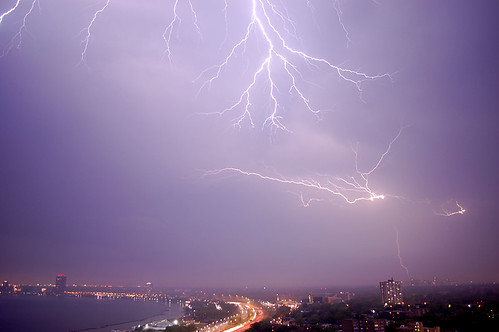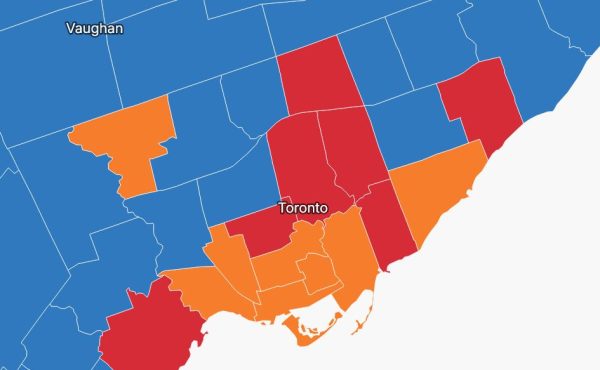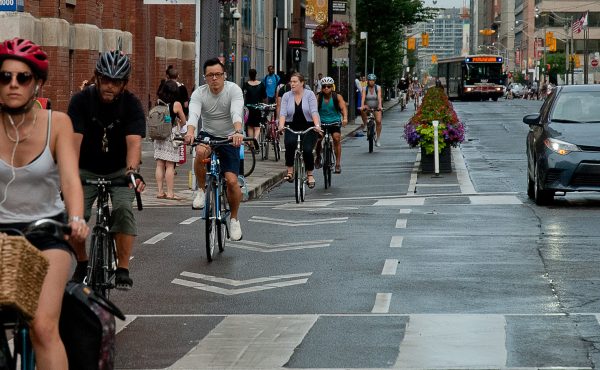
Clever graffitti really should inform more of the debate in our federal election. There I was, tearing my hair out trying to understand how anyone can think that giving young people longer criminal sentences is the most important issue facing the country, when crime rates are dropping and global warming threatens the future of all youth (plus everyone else).
But then I came across an on-line mini-lecture by Dan Gilbert — best-selling author, Harvard Psychology professor and author of the title of this rant. Sadly (for me), he has some pretty good reasons why we are blind to the danger posed by rising greenhouse gas levels, while the threats of tooth decay, terrorism or youth crime trigger immediate responses.
It’s well worth a listen, but he sums it up as: “ Global warming is a deadly threat only because it fails to trigger the brain’s alarms. It leaves us sleeping in a burning bed. It remains to be seen whether if we can learn to rouse ourselves to battle an impersonal, slow and quiet enemy that is indeed more dangerous than any our ancestors ever imagined.â€
Alas, the record of our ancestors on this score is not promising. But not entirely hopeless either. Archaeologist/historian Ronald Wright sums up the historical evidence in his brilliant little book A Short History of Progress with a single line stolen from a piece of graffiti: “Each time history repeats itself, the price goes up.â€
I’ve tacked this line onto the wall by my desk because I think it is both clever and wise — and the placement seems appropriate for an academic thesis that started as a piece of street art whose creator the get-tough-on-youth-crime crowd would have us jail.
Clever because it plays upon our familiarity with the expression “Those who forget history are doomed to repeat it.†So it highlights the possibility of avoiding paying the price by actually learning from our mistakes, even while cynically doubting that this is probable. But at least our unknown graffiti artist retained enough hope to bother writing his warning on a wall.
Wise because it’s a pretty accurate summary of the historical evidence. Wright’s book — and others like it such as Jared Diamond’s Collapse: How Societies Choose to Fail or Succeed — make the point that we humans have a long and ignoble history of fouling our own nests to such an extent that society (as we knew it at that time and place) collapses. They are also pointing out that, unlike ancient Sumer, Rome or Easter Island where the collapse was local or regional, there’s now nowhere else to go to escape the unintended consequences of our actions.
Yet the reason I’m particularly fond of Wright’s musings on the paradoxical nature of Progress is that, while not flinching from the nasty bits in its rather seamy underbelly, he is most critical of its failure to live up to its potential: “For all its cruelties, civilization is precious, an experiment worth continuing. It is also precarious: as we climbed the ladder of progress, we kicked out the rungs below. There is no going back without catastrophe.â€
And that idea — of using our big brains, which have created the problem by imagining we could outsmart nature, to instead figure out how we get to a world in which all people can lead happy, healthy lives within their fair share of the earth’s resources, while leaving space for other species and wild spaces — is worth pursuing.
Indeed, the question isn’t whether we can solve climate change — we can. The question is can we as a society learn to look beyond the in-our-face threats that trigger fight-or-flee responses, to deal with the bigger threats that leave you nowhere to run to.
To this end, one of the things we need to do in this election is figure out how to avoid having a pro-climate action majority translate via the miracle of the electoral process into an anti-climate action government. The new Vote For Environment site is a useful guide, but it’s a little frustrating being in Toronto where there aren’t any Tories to defeat. So if you still want to do your bit – support the Avaaz Stop Harper campaign.
It’s better than pulling out your hair.




3 comments
This isn’t a criticism. It’s just a factoid/footnote in case you were interested: Spanish philosopher George Santayana’s often paraphrased quote is “Those who cannot remember the past are condemned to repeat it.”
Human-made climate change won’t kill us… it’s that humans will put enough CO2 in the air to release the 400 gigatons of methane in the Siberian and Arctic permafrost.
When that starts happening people will notice, but then it will be too late.
Just wanted to say great job with the blog, today is my first visit here and I’ve enjoyed reading your posts so far 🙂
Juan